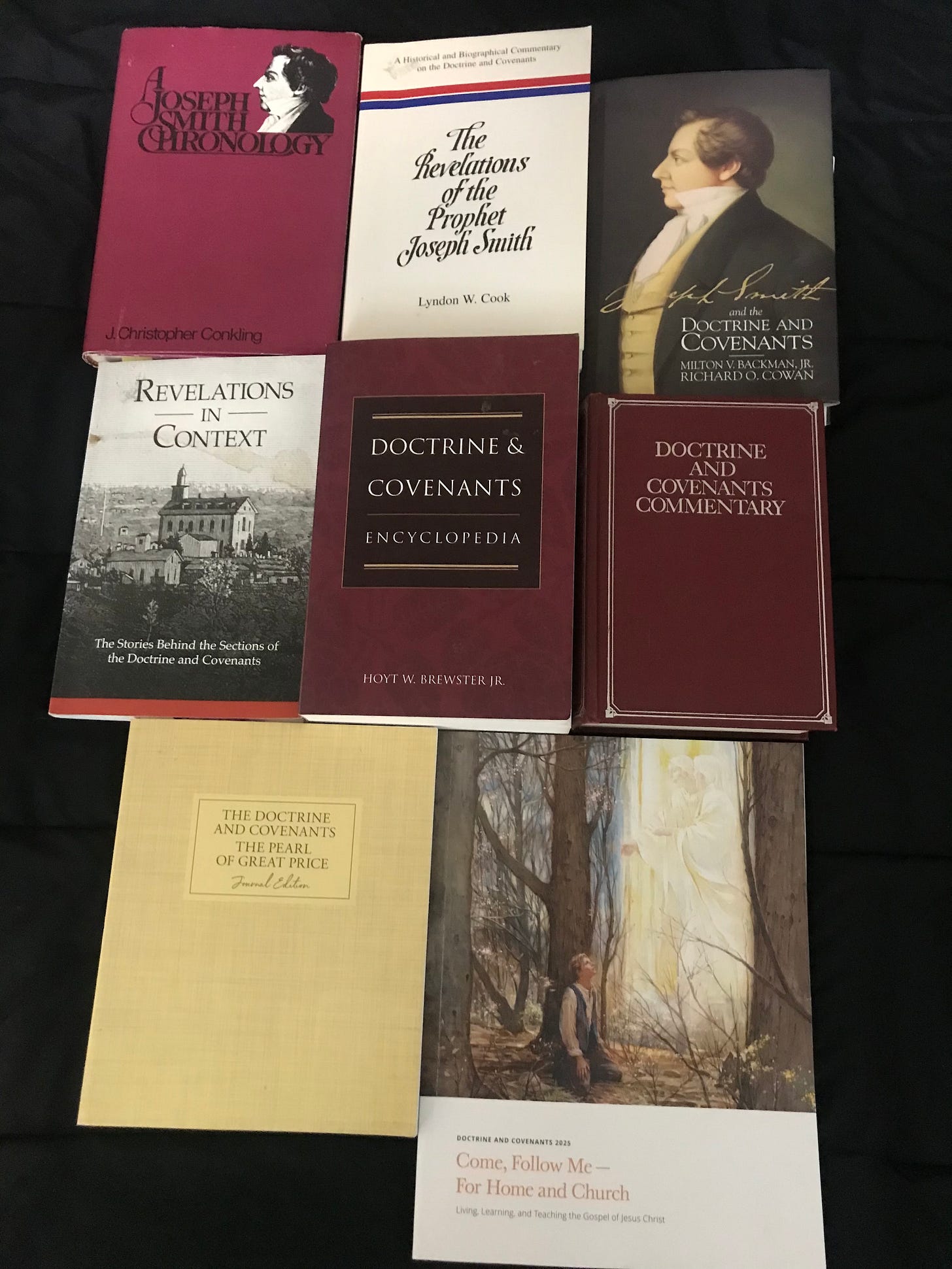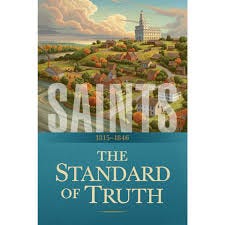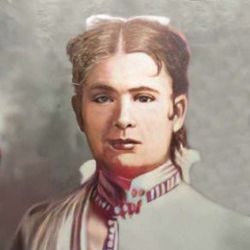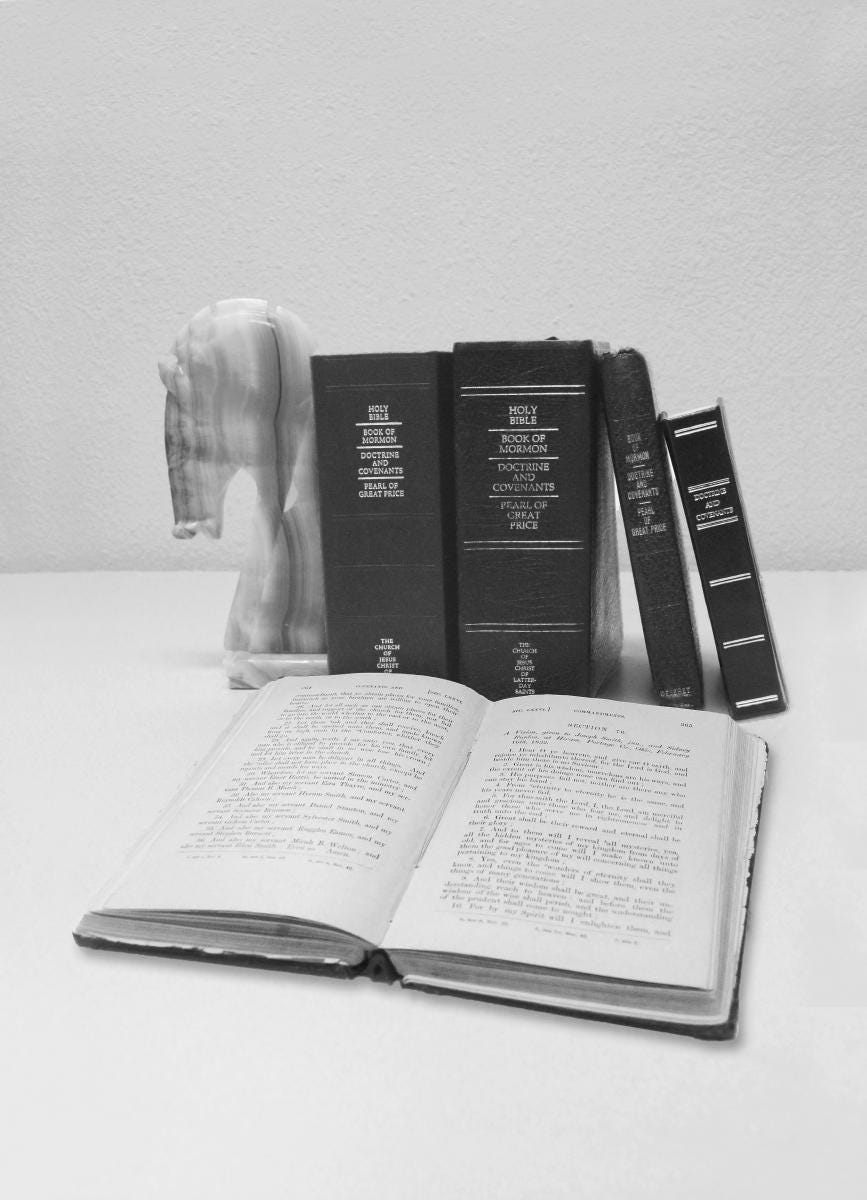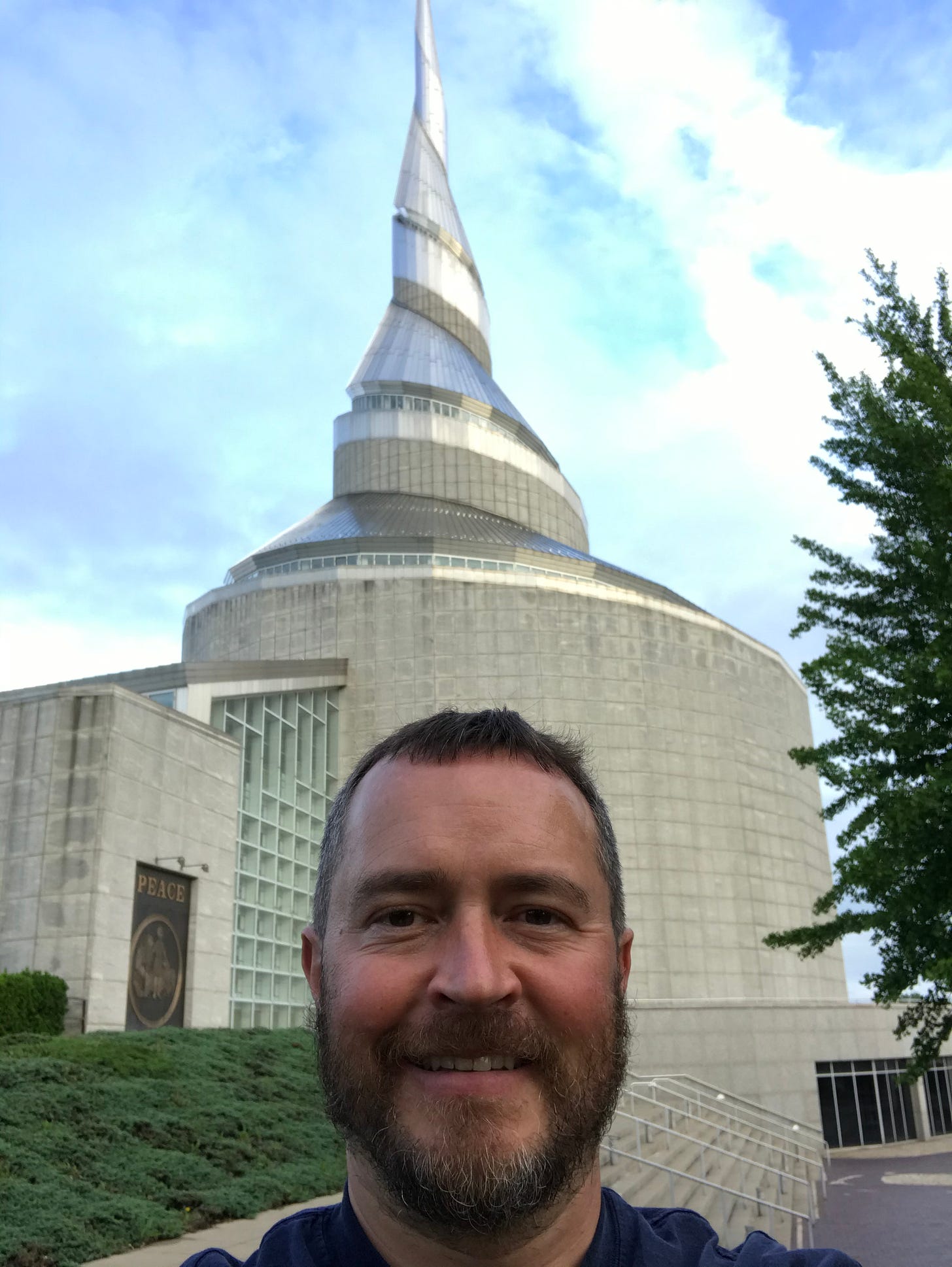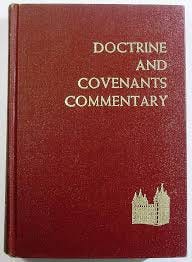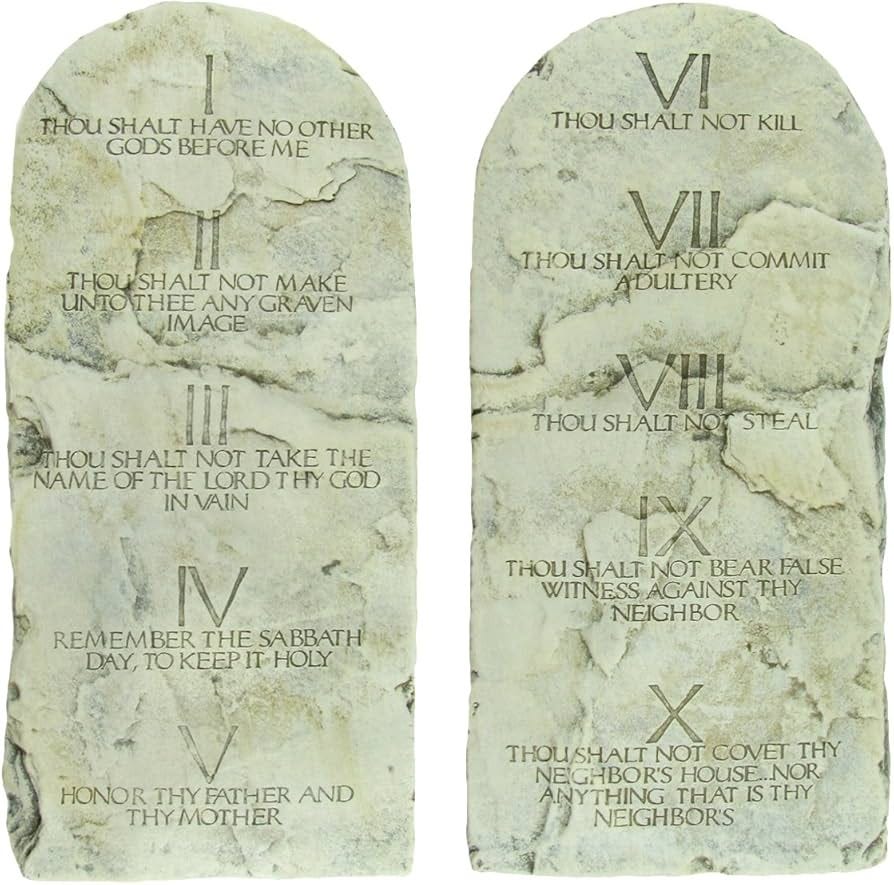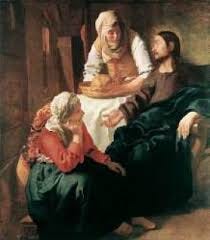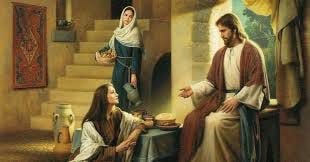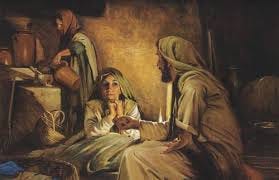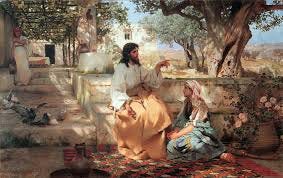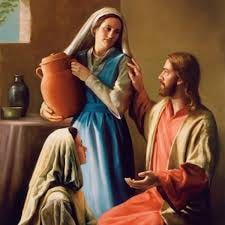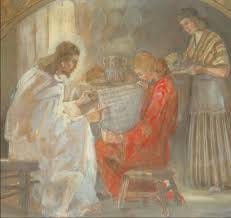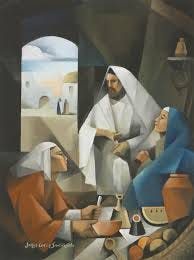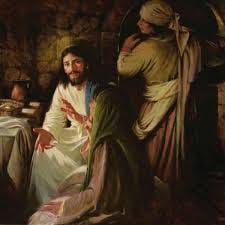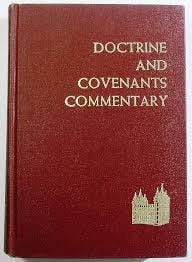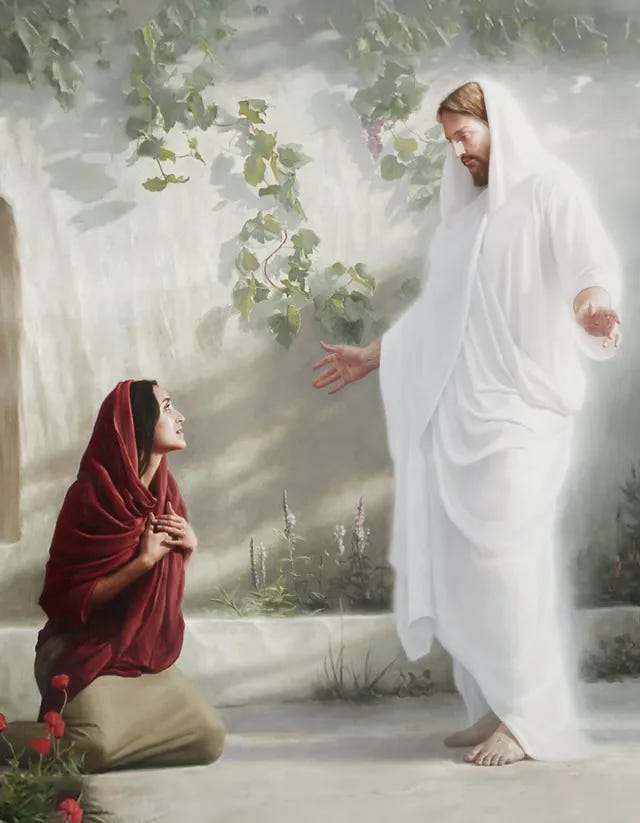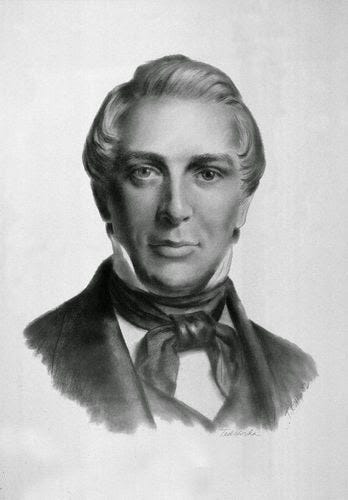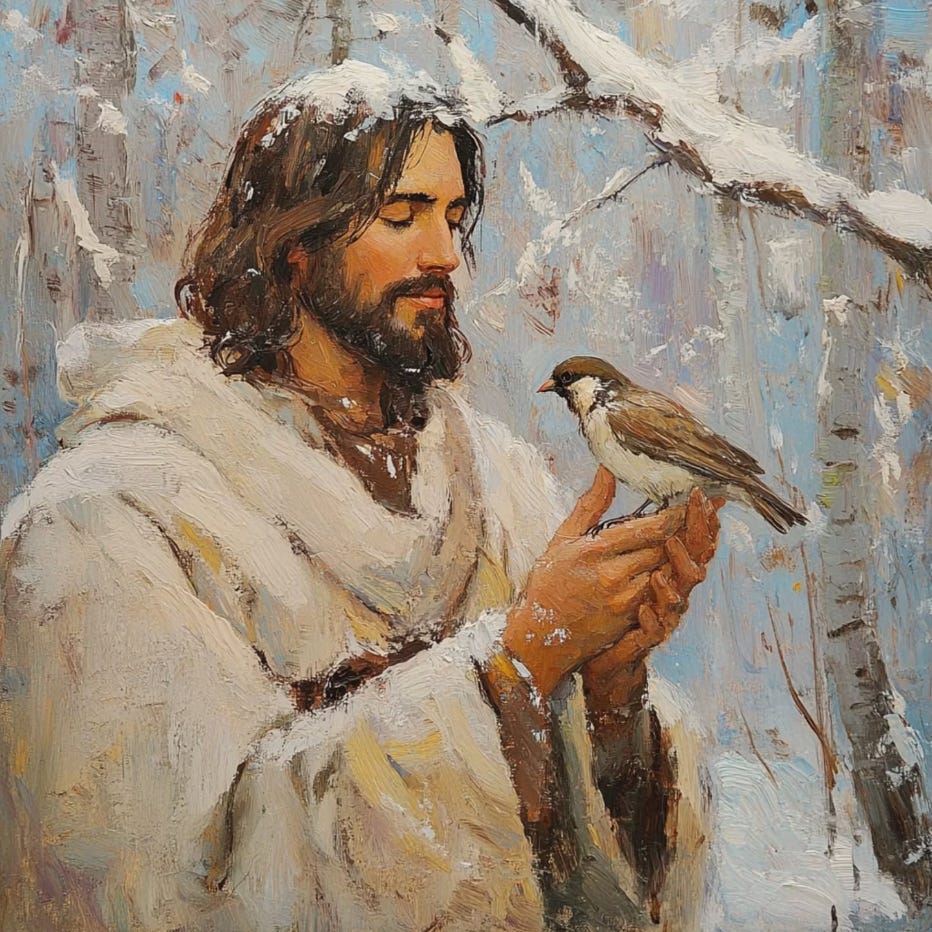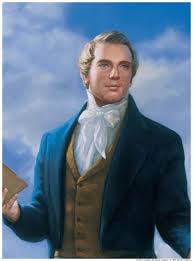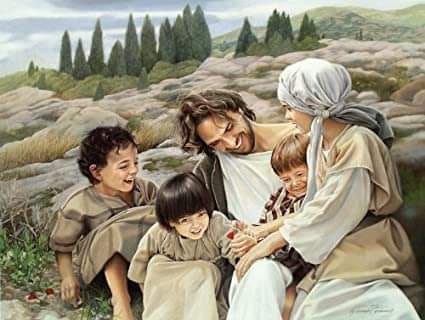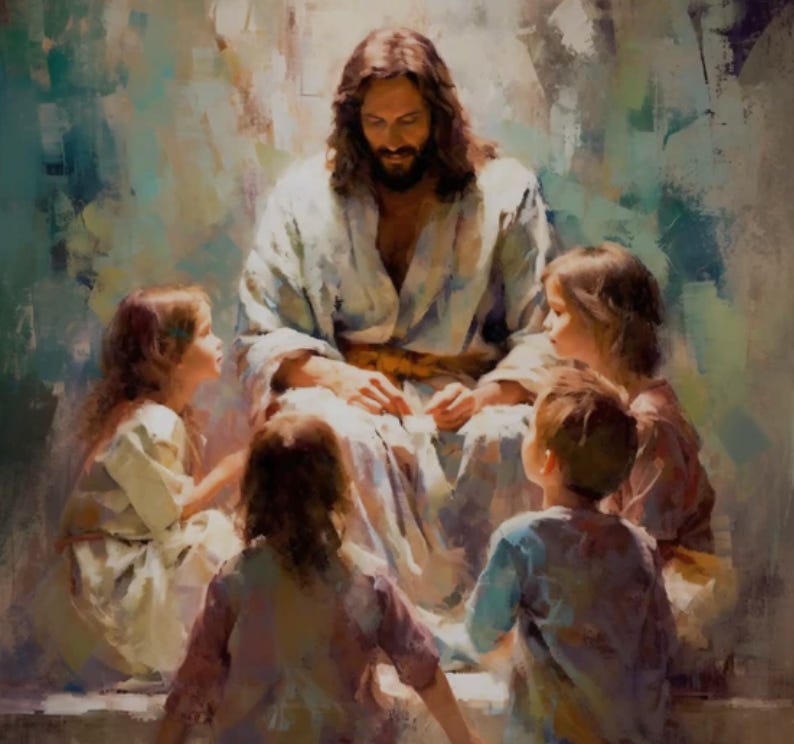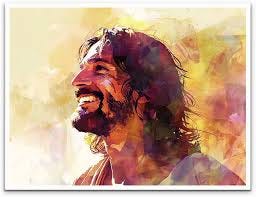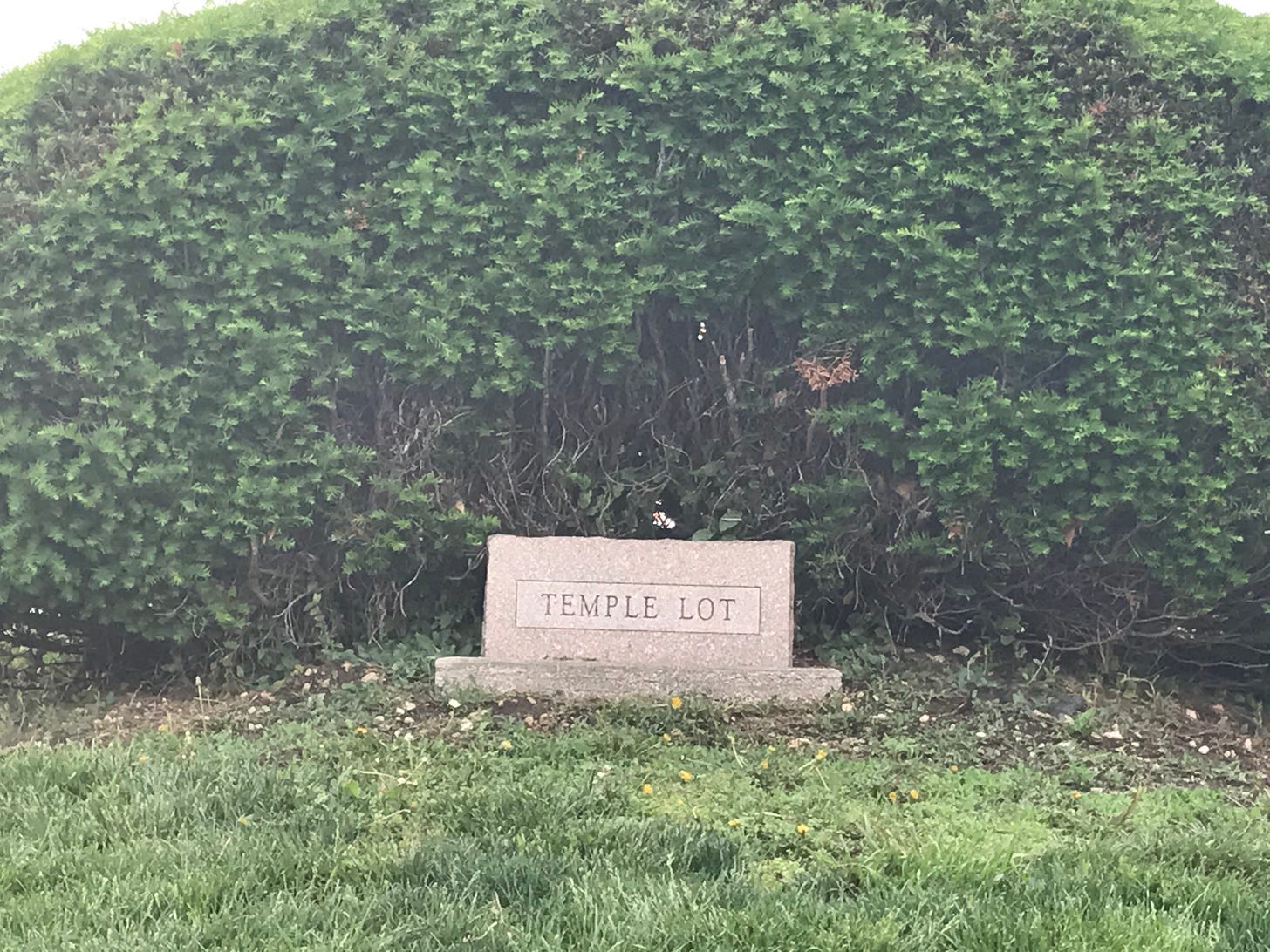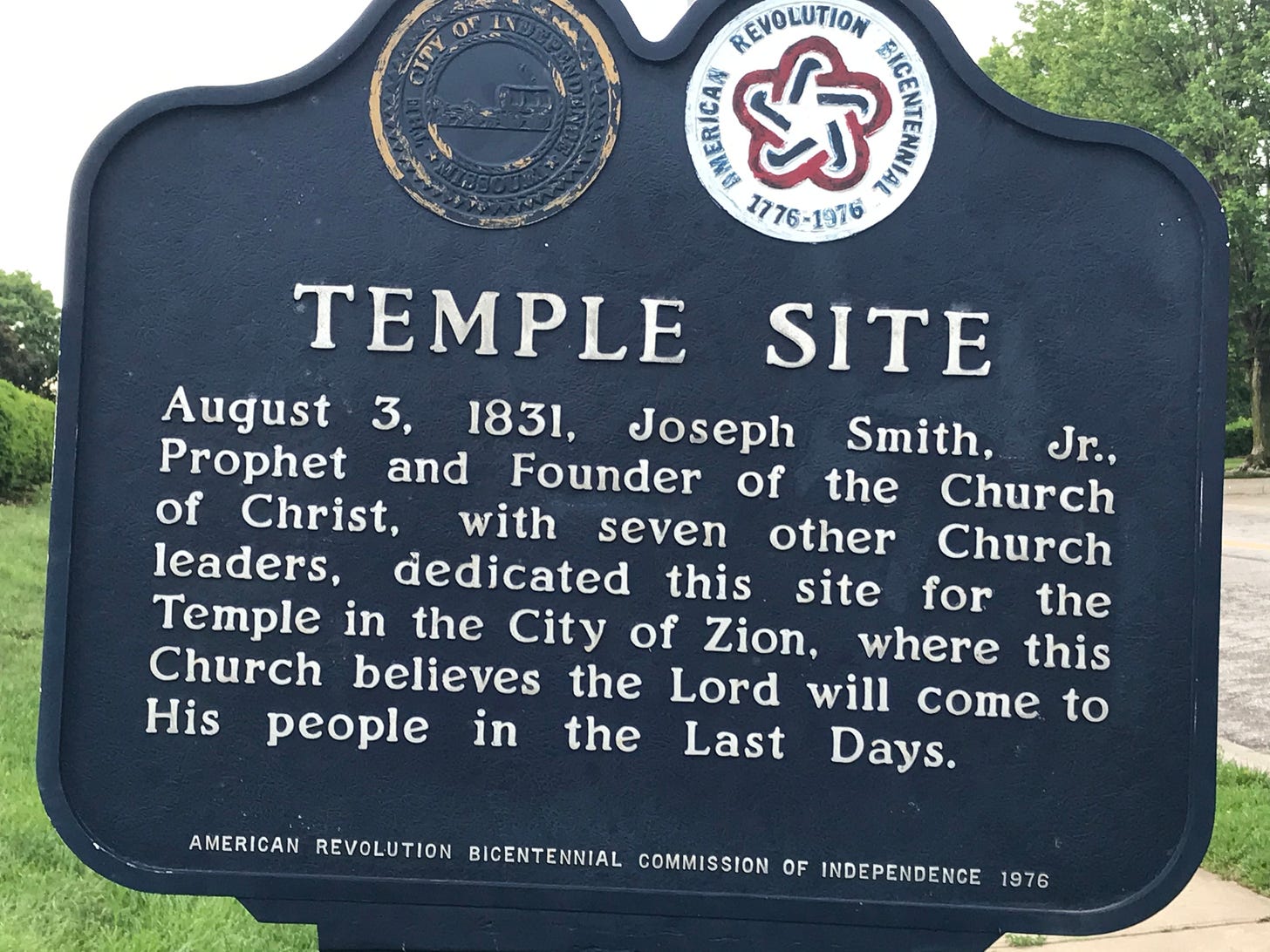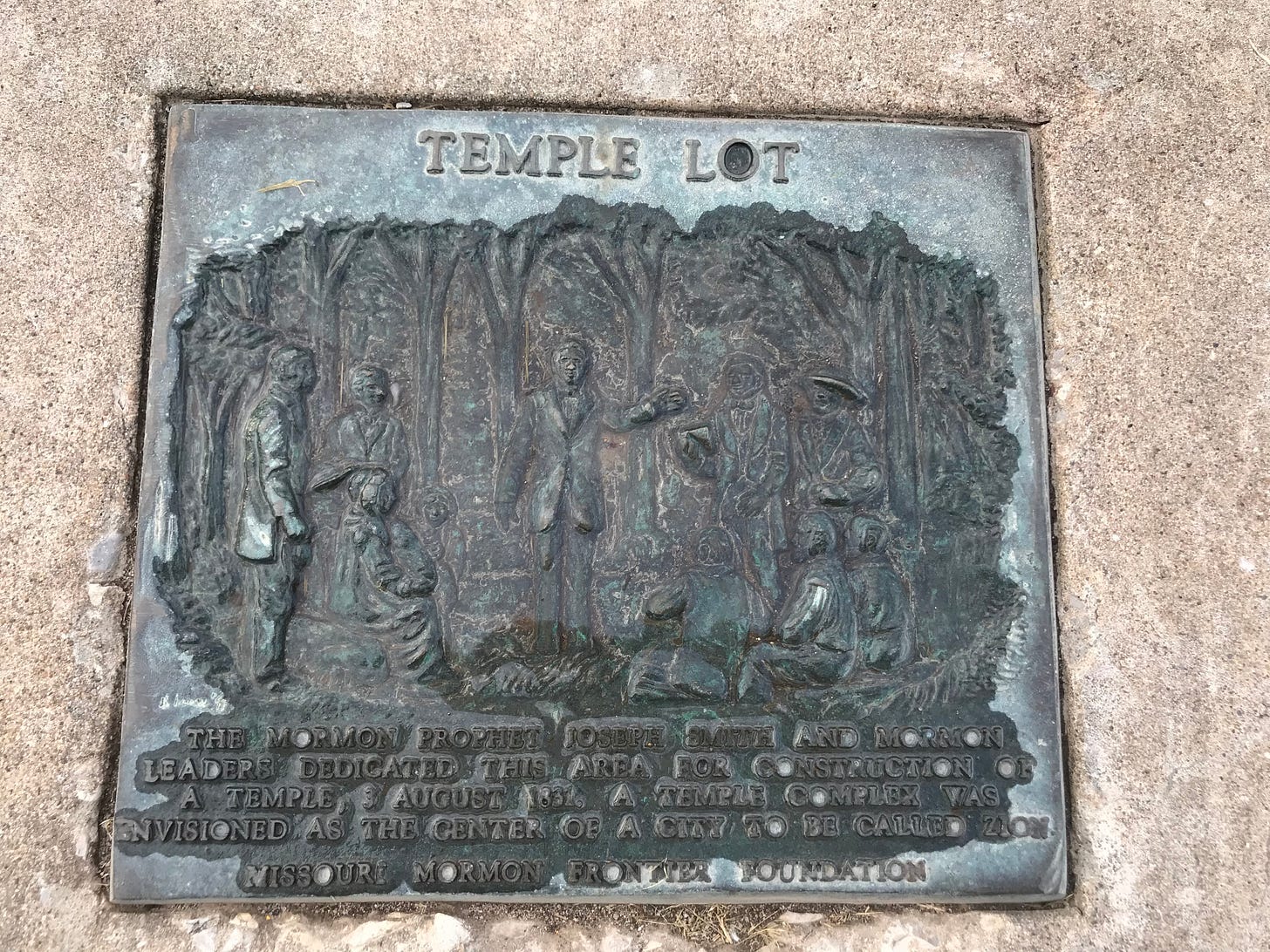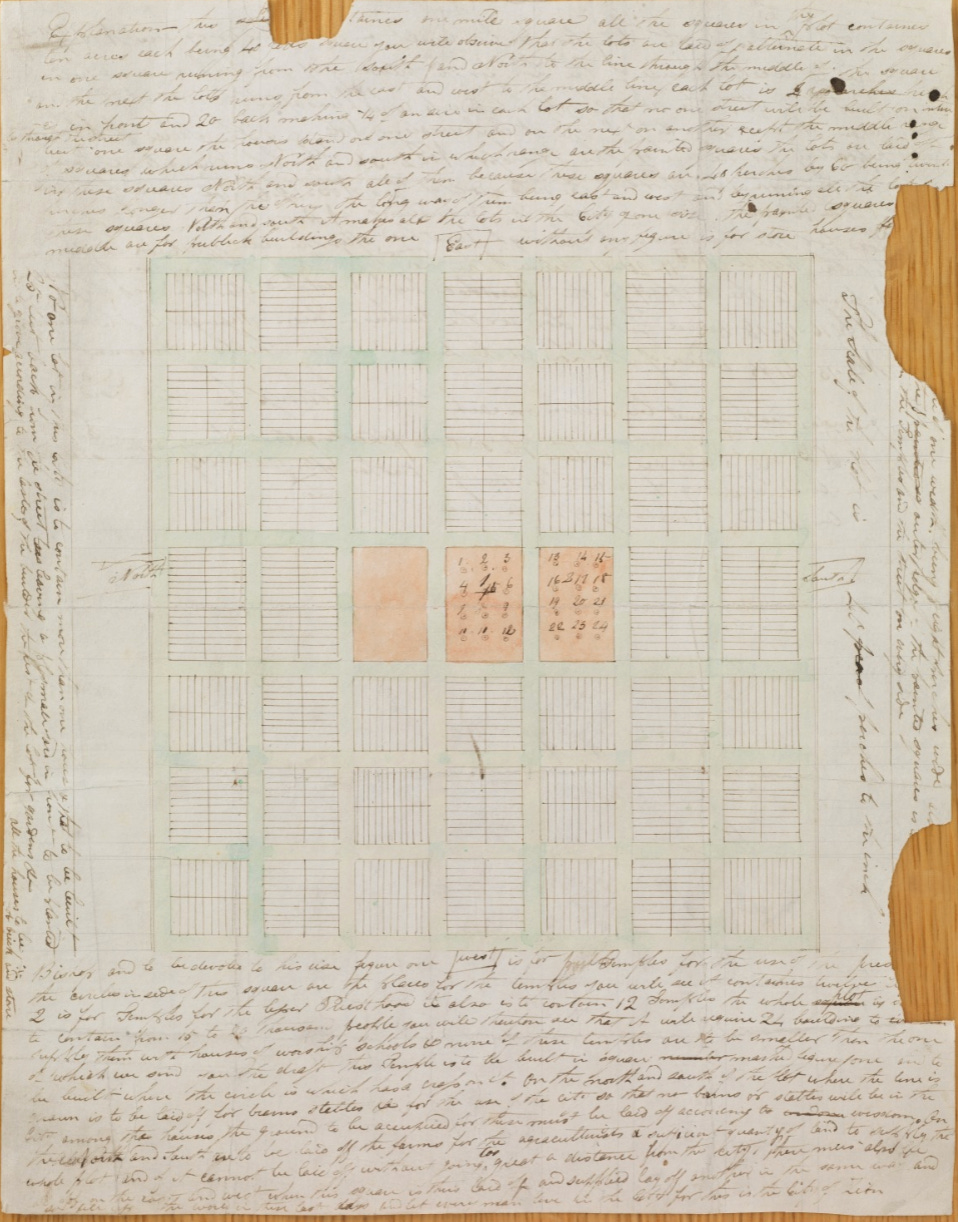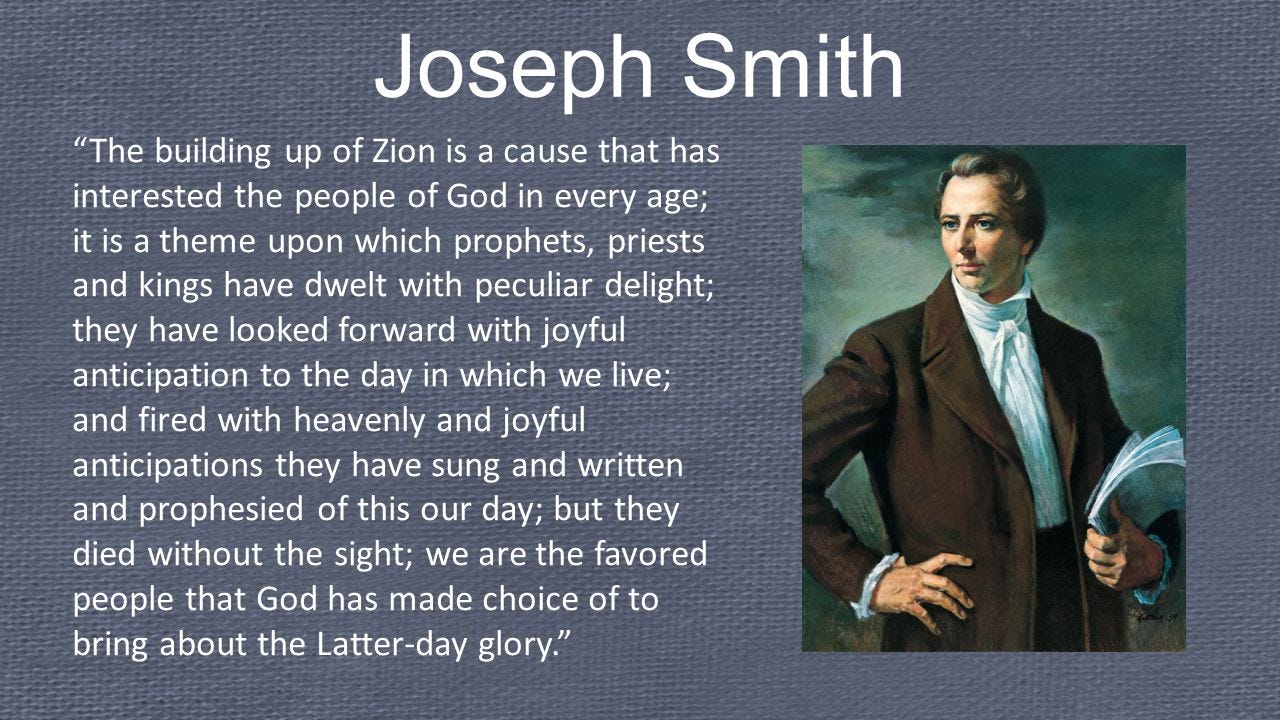Thank the Lord Thy God in All Things
Historical Background and Reflections on Doctrine and Covenants 59
What is the historical background for Doctrine and Covenants 59?
In his book The Revelations of the Prophet Joseph Smith, Lyndon W. Cook sheds light on this topic:
Date. 7 August 1831 (Sunday).
Place. Jackson County, Missouri.
Historical Note. Section 59 is a revelation that speaks of Zion, the Decalogue, and the Sabbath Day. The sixty members of the Colesville Branch of the Church arrived in Jackson County, Missouri, on 25 July 1831. Among their number was Polly Knight (the wife of Joseph Knight, Sr.), who died 6 August 1831 and was buried on 7 August. She was the first member of the Church to die in Missouri. Joseph Knight, Sr., whose account differs slightly with regard to dates, stated that shortly after the arrival of the Colesville Branch,
“Joseph and Sidney and a number of Brotherin came and they looked out and Entered a Considrible of Land, for the People to Settle on. We found it a new Countty with some settlrs on it. There was one Joshua Lewis that had Come into the Church the winter Before, he and his wife. And they ware faithful and good to us and took us in to ther house, my wife Being sick as befor stated. She Died the Seventh Day of August and Joseph and Sidney attended her funeral on the eighth. She was Burried in the woods a spot Chosen and By our selves. I was along By where she was Buried a few Days after and I found the pigs had Begun to root whare she was Burried. I Being verry unwell But I took my ax the next Day and went and Bilt a pen around it. It was the Last I done for her.”
Speaking of Polly Knight, Joseph Smith declared, “a worthy member [she] sleeps in Jesus till the resurrection.”
Verses 1-2 have specific reference to Polly Knight’s death.
Publication Note. Section 59 was first published in the Evening and Morning Star (July 1833) and was included as chapter 60 in the Book of Commandments in 1833. (pp. 93-94)
In his book A Joseph Smith Chronology, J. Christopher Conkling records the following background information for this section:
Aug. 7, 1831
The funeral of Polly Knight, wife of Joseph Knight, Sr., is held. Polly prayed during her journey to Missouri that she might only be allowed to set foot on the promised land. Shortly after she arrives, she dies, being the first member of the Church to pass away. On the day of her funeral, the Lord tells the Saints through Joseph that those who live in the Lord and die in the Lord are given great promises. (See D&C 59) (p. 26)
In the first volume of Saints we learn more details about the historical background for this section:
After three weeks of travel, Polly Knight arrived in Independence with the Colesville Saints. She stood feebly on the ground, grateful she had reached the land of Zion. Her body was rapidly failing, though, and two recent converts from the area brought her into their home so she could rest in relative comfort.
As the Knights searched the area for a place to settle, they found the countryside beautiful and pleasant, with rich land they could develop and farm. The people also seemed friendly, even though they were strangers. Unlike some of the elders from Kirtland, the Colesville members believed the Saints could build Zion there.
On August 2, the Saints in Missouri assembled several miles west of Independence to begin work on the first house in Zion. Joseph and twelve men from the Colesville Branch, who symbolically represented the tribes of Israel, laid the first log for the building. Sidney then dedicated the land of Zion for the gathering of the Saints.
The next day, on a plot west of the courthouse in Independence, Joseph carefully laid a single stone to mark the corner of the future temple.25 Someone then opened a Bible and read from the eighty-seventh psalm: “The Lord loveth the gates of Zion more than all the dwellings of Jacob. Glorious things are spoken of thee, O city of God.”26
A few days later, Polly died, praising the Lord for supporting her in her suffering.27 The prophet preached the funeral sermon, and her husband buried her body in a patch of woods not far from the temple site. She was the first Saint laid to rest in Zion.28
The same day, Joseph received another revelation: “Blessed, saith the Lord, are they who have come up unto this land with an eye single to my glory, according to my commandments. For those that live shall inherit the earth, and those that die shall rest from all their labors.”29 (p. 132)
In the chapter “The Journey of the Colesville Branch” in Revelations in Context, Joseph F. Darowski describes the same historical background as follows:
The Move to Missouri
Leaving Thompson in early June 1831, sixty members of the branch reached Kaw Township in Jackson County, Missouri, on July 26 after a journey of about a thousand miles. Though Joseph Smith had arrived shortly before the Colesville Saints, they had the distinction of being the first branch of the Church to settle the land that had been dedicated as Zion on August 2, 1831, by Sidney Rigdon. Sadly, Joseph Knight Sr.’s wife, Polly, died a few days after their arrival. According to his later history, Joseph Smith “attended the funeral of sister Polly [Peck] Knight. … This was the first death in the church in this land, and I can say a worthy member sleeps in Jesus till the resurrection.”9
That same day, Joseph received the revelation now known as Doctrine and Covenants 59, outlining how the Church was to observe the Lord’s day. In that revelation, the Lord included words of comfort for Polly Knight’s family and friends: “Blessed … are they who have come up unto this land with an eye single to my glory according to my Commandments for them that live shall inherit the earth and them that die shall rest from all their labours & their works shall follow them they shall receive a crown in the mansions of my Father which I have prepared for them.”10
Joseph Smith visited his friends in the Colesville Branch in Missouri again in April 1832. On that occasion, Joseph sealed the members of the branch up to eternal life.11 During the Jackson County mobbing of 1833, the Colesville Branch fled with many other Saints into neighboring Clay County. They settled together there for a time, even building a chapel. However, once the Church moved on to Caldwell County in 1836, the branch membership was scattered, and their time together as one of the first organized units in the Church came to an end.
The Knights and others from the former branch joined many of the Saints in escaping to Illinois in the aftermath of the conflict between the Saints and some of their neighbors in Missouri in 1838. The Knights settled in the Nauvoo area and remained faithful members of the Church and friends of Joseph Smith. After Joseph’s martyrdom in 1844, the Knight family followed the leadership of the Quorum of the Twelve Apostles. Both Joseph Knight Sr. and his son Newel died in 1847 during the exodus from Nauvoo to the Salt Lake Valley. (pp. 43-44)
Who was Polly Knight? (see also here, here, and here)
The LDS Come Follow Me manual includes a brief snippet about Polly’s life:
Polly Knight and her husband, Joseph Knight Sr., were some of the first believers in Joseph Smith’s prophetic calling. Polly and Joseph gave vital support to the Prophet in the work of translating the Book of Mormon. The Knight family left Colesville, New York, to gather with the Saints in Ohio and were later commanded to move to Jackson County, Missouri. As they traveled, Polly’s health began to decline, but she was determined to see Zion before she died. She had been in Missouri only a few days when she passed away (see Saints, 1:127–28, 132–33). Doctrine and Covenants 59 was received on the day of her passing, and verses 1 and 2 might refer specifically to her.
This is Bruce R. McConkie’s section heading:
Revelation given through Joseph Smith the Prophet, in Zion, Jackson County, Missouri, August 7, 1831. Preceding this revelation, the land was consecrated, as the Lord had directed, and the site for the future temple was dedicated. On the day this revelation was received, Polly Knight, the wife of Joseph Knight Sr., died, the first Church member to die in Zion. Early members characterized this revelation as “instructing the Saints how to keep the sabbath and how to fast and pray.”
Let’s examine and appreciate D&C 59 a piece at a time:
Behold, blessed, saith the Lord, are they who have come up unto this land with an eye single to my glory, according to my commandments.
For those that live shall inherit the earth, and those that die shall rest from all their labors, and their works shall follow them; and they shall receive a crown in the mansions of my Father, which I have prepared for them.
Yea, blessed are they whose feet stand upon the land of Zion, who have obeyed my gospel; for they shall receive for their reward the good things of the earth, and it shall bring forth in its strength.
And they shall also be crowned with blessings from above, yea, and with commandments not a few, and with revelations in their time—they that are faithful and diligent before me. (D&C 59:1-4)
This is a great blessing.
The early Saints were blessed because they obeyed the Lord and His servant Joseph Smith. They journeyed to Zion with an eye single to the glory of God. In light of Sister Polly Knight’s recent passing and funeral, the Lord helped the early Saints to understand that all the obedient whose eye is single to the glory of God are blessed, whether in life or in death. The living were and are blessed to inherit the earth, and the dead, like Polly Knight, were and are blessed to rest from all their labors, and to receive the crown that Jesus Christ prepared for them in our Heavenly Father’s mansions.
Even though Independence, Missouri seemed like a rugged wilderness, the Saints who journeyed there in obedience to the revelations were blessed and rewarded. What was their reward? The good things of the earth and blessings from above. In other words, they were blessed both temporally and spiritually. They were also blessed with commandments not a few, and with revelations in their time. The Lord always blesses His faithful and diligent children.
I would like to receive these blessings too, even after my own feet stood upon the land of Zion not too long ago.
What do you think that it means to be blessed with commandments not a few, and with revelations in their time?
Regarding these verses, Smith and Sjodahl write:
The Fifth Conference of the Church was held August 4th, 1831 (Sec. 58:58), and on the 7th, the Prophet attended the funeral of sister Polly Knight, Sr. Her health had been failing for some time, and she was very ill during the journey from Kirtland to Independence, but she had a strong desire to see the Land of Zion. She lived to have that wish gratified, and then she slept in peace. She was the first of the Saints to pass away in that country. This Revelation was received on the day of the funeral. In it the Lord (1) assures the Saints in Zion that they are blessed, whether the live of die (1-4); (2) reiterates the great commandments (5-6); (3) shows how love of God is manifested (7-14); (4) promises blessings to the obedient (15-21); and (5) gives further promises (22-24).
The Inhabitants of Zion Blessed.
Blessed *** they who have come up unto this land] “Blessed” means “happy.” The inhabitants of Zion are happy; but there is a condition: If they have come “with an eye single to my glory, according to my commandments.” Those who go there to get wealth and honor have something else in view than the glory of God, and they have no promise of happiness.
They that live *** the earth] They that live in Zion, and keep the commandments of God, shall receive their inheritances. This earth is the Lord’s, and He will share it with them.
They that die *** rest] They that die shall rest from their labors. Death to them is but a sweet repose, a rest from toil, a refreshing sleep, from which they shall awake in the morning of the resurrection.
Their works shall follow them] We are not to suppose that those who die in Zion before the coming of the Lord lose the reward of witnessing that great event and partaking in its glory. For both they and their good works have as real an existence after death as before. They are resting from their labor, but what good they have accomplished, remains. The architect may rest, but his house stands there, a monument to his genius and diligence.
This is a notable passage. In Rev. 14 we read about the restoration of the gospel in our day, through the instrumentality of an angel flying in mid-heaven, proclaiming the advent of our Lord. The contents of the message are indicated as follows: First, worship God as He is revealed in the story of the Creation; not the God of man-made creeds; second, fallen is Babylon; and, third, doomed to drink of the wrath of God are all who worship the “beast” and his “image.” These are characteristics of the everlasting gospel, as regards the living. There is another, which more especially pertains to the dead; for the gospel embraces both living and dead. It is this, “Blessed are the dead which die in the Lord from henceforth” (Rev. 14:13). From henceforth, that is to say, from now onward, since the gospel has been restored, the state between death and resurrection is no longer conceived of as a gloomy existence, torture in hell, or purgatory, unconsciousness, or annihilation, but as a conscious, active existence under the influence of the mercy of the eternal Father. John, in the Revelation, saw this feature of the Gospel of Jesus Christ, as restored to the Earth in our day, and here is a clear indication of the doctrine of the blessedness of the dead as seen by him, by which we may identify the gospel preached by the Prophet Joseph with that proclaimed by the angel in Rev. 14. Later, the glorious truth of vicarious work for the dead, which is here indicated, was more fully revealed.
Blessed *** upon the land of Zion] Happy are they who are in Zion, “who have obeyed my gospel.” This includes the Word of Wisdom, the Law of Consecration, and all other laws and ordinances of the gospel.
They shall receive *** good things of the earth] God blesses the soil and the labor expended upon it, for the good of His children who keep His commandments.
Blessings from above] The heavenly influence that will enhance the enjoyment of the good things of the Earth.
And with commandments] Those who love God, love his commandments, and blessings bestowed upon them. Love prompts them to render obedience. (pp. 348-349)
I appreciate and enjoy Smith’s and Sjodahl’s commentary, with most of which I agree. I recently stumbled upon a couple of volumes that until then I didn’t know existed, volumes that I hope to incorporate into our study:
Doxey also has a book that looks interesting called The Doctrine and Covenants and the Future. The premise and description of the book rings true to me:
[T]he revelations given to the Prophet Joseph Smith as contained in the Doctrine and Covenants, have not been given the attention they should receive by members of The Church of Jesus Christ of Latter-day Saints. The importance of the Doctrine and Covenants cannot be over-emphasized in its message to Latter-day Saints and to the world. The title of this volume, The Doctrine and the Covenants and the Future, emphasizes one of the significant purposes for which the Lord established His work on the earth in this culminating period of time.
The Lord’s revelation in D&C 59 continues:
Wherefore, I give unto them a commandment, saying thus: Thou shalt love the Lord thy God with all thy heart, with all thy might, mind, and strength; and in the name of Jesus Christ thou shalt serve him.
Thou shalt love thy neighbor as thyself. Thou shalt not steal; neither commit adultery, nor kill, nor do anything like unto it. (D&C 59:5-6)
This is more than just a reiteration of the Great Commandments. It is the Lord’s direct reiteration of His Great Commandments, through His prophet Joseph Smith, to the early Saints, and to us. It is the Lord Himself who expounds upon His Great Commandments. The first part of the First Great Commandment we recognize from the New Testament and the Old Testament. But notice what the Lord adds: “and in the name of Jesus Christ thou shalt serve Him.” When we love the Lord our God with all our heart, might, mind, and strength, we also desire to obey the corollary Great Commandment that the Lord Himself adds here, namely to serve the Lord our God in the name of Jesus Christ.
We also recognize the Second Great Commandment from the New Testament and the Old Testament. But in these verses the Lord reveals how the second table of the Decalogue flows naturally from this Second Great Commandment. In other words, when we truly love God with all our heart, might, mind, and strength, we will serve Him in the name of Jesus Christ, and when we truly love our neighbor as ourselves, we will obey the second table of the Decalogue.
Smith and Sjodahl observe:
The Two Great Commandments.
-6. Our Lord has declared that these are the greatest commandments in the Law, because upon them “hang” all the Law and the Prophets. The Word of God presupposes and depends on love of God and fellowmen. If there is no such love, laws and instructions are of but little avail.
Heart, might, mind, and strength] “Heart” stands for “emotions,” “sentiment.” “Might” here stands for “soul,” the term used in Matthew 22:37, and means the spiritual faculties. “Mind” refers to the intellect, and “strength” to the physical attributes. This commandment enjoins on us to love our heavenly Father so that our entire beings - our emotions, our spiritual faculties, our mental and physical activities are all devoted to Him and His service.
In Deuteronomy 6:5, the great commandment reads “Heart,” “soul,” and “mind,” Matthew has, “Heart,” “soul,” “strength,” and “mind.” In the Doctrine and Covenants the text differs somewhat from all. When the Spirit of the Lord speaks through a human instrument, He acts independently , even when proclaiming truths formerly revealed. Strictly speaking, the Holy Spirit does not quote the Scriptures, but gives Scripture.
Love thy neighbor as thyself] This law is eternal. It was given to Israel (Lev. 19:18): “Thou shalt not avenge, nor bear grudge against the children of thy people, but thou shalt love thy neighbor as thyself.” Is it impossible to do this? God does not give a command that cannot be obeyed. (pp. 349-350)
I would like to reiterate a point that Smith and Sjodahl make here, namely, that the Lord revealed these verses to the Prophet Joseph Smith for the early Saints (and for us) and this is why the text reads somewhat differently from the same commandments that were given in the Bible.
The Lord gave scripture to the Prophet Joseph Smith, and He gives Scripture to us through the Holy Ghost. The Lord’s First Great Commandment, therefore, as this revelation teaches, isn’t merely for us to love God with all our heart, might, mind, and strength as some kind of passive emotion, ephemeral thought, or theoretical state of the soul, but to actively demonstrate our love for Him by serving Him in the name of His Beloved Son Jesus Christ. In a couple of short verses, the Prophet Joseph Smith revealed pure truth that defies and transcends centuries of theological conflict and debate. Not only this, but by revelation, the Prophet Joseph Smith articulated things as they really are, the temporal and spiritual realms inextricably connected and woven together.
The revelation in D&C 59 continues:
Thou shalt thank the Lord thy God in all things.
Thou shalt offer a sacrifice unto the Lord thy God in righteousness, even that of a broken heart and a contrite spirit.
And that thou mayest more fully keep thyself unspotted from the world, thou shalt go to the house of prayer and offer up thy sacraments upon my holy day;
For verily this is a day appointed unto you to rest from your labors, and to pay thy devotions unto the Most High;
Nevertheless thy vows shall be offered up in righteousness on all days and at all times;
But remember that on this, the Lord’s day, thou shalt offer thine oblations and thy sacraments unto the Most High, confessing thy sins unto thy brethren, and before the Lord.
And on this day thou shalt do none other thing, only let thy food be prepared with singleness of heart that thy fasting may be perfect, or, in other words, that thy joy may be full.
Verily, this is fasting and prayer, or in other words, rejoicing and prayer. (D&C 59:7-14)
The revelation flows forth, and the commandments, not a few, continue. If the preceding verses revealed the what and the why of the Gospel, these verses reveal more about the how: how to serve God and demonstrate our love for Him and for His Beloved Son. We must thank God in all things, offer a sacrifice of a broken heart and a contrite spirit, keep ourselves more fully unspotted from the world by going to the house of prayer to offer up our oblations and sacraments unto the Most High upon His holy day, and confess our sins. The Sabbath Day is sacred and holy, a day of rest, and a day in which to focus our whole hearts and thoughts upon the Lord. It is a gift and a blessing from God to increase our joy and rejoicing, with the help of fasting and prayer, or rejoicing and prayer. It is a day in which to choose the better part, and to do the one thing needful, as Mary did when she sat at the feet of Jesus to learn of Him.
Why was it so important for these early Saints to honor the Sabbath day as they sought to build Zion?
Why is it important to you?
How does keeping the Sabbath day holy help us to remain “unspotted from the world”?
What can we do to pay our “devotions unto the Most High”?
What makes the Sabbath joyful?
Regarding these verses, Smith and Sjodahl write:
How Love of God Is Manifested
Thank the Lord] Gratitude is a natural manifestation of love. We are commanded to thank God “in all things;” in adversity as well as prosperity; in sorrow as well as joy; in death as well as life. If we love God, we shall never pray for benefits without thanking Him for blessings already bestowed.
Offer a sacrifice] Sacrifice is a natural manifestation of love. But the sacrifice God delights in is a “broken heart and a contrite spirit” (See Sec. 52:15). God dwells in “the high and holy place” - at an infinite distance from human greatness and pride, but also with him that is of a “contrite and humble spirit.” Humility is the beginning of exaltation.
My holy day] The day of the Lord. God has given His children the Law of the Sabbath, in order that they may manifest their love for Him by observing that day.
On the Sabbath, the Saints should be in the house of prayer and offer up their “sacraments;” that is, present their devotions before the Lord, in the from of songs of praise, prayer and thanksgiving, testimonies, partaking of the Sacrament, and contemplation of the Word of God. All this is meant by the word “sacrament,” which, in its widest range, stands for any sacred rite or ceremony whereby we affirm our allegiance to our divine Lord.
A day *** to rest from your labors] Man needs a day of rest every week, in addition to his rest at night.
“Instead of suffering our labors to occupy the Sabbath - instead of planning our business to infringe upon the first day of the week, we should do as little as possible; if it is necessary to cook food, do so; but even if that could be dispensed with, it would be better *** Under the new covenant, we should remember to preserve holy one day in the week as a day of rest - as a memorial of the rest of the Lord and the rest of the Saints; also for our temporal advantage, for it is instituted for the express purpose of benefiting man” (Brigham Young, Jour. of Dis., Vol. VI., p. 277).
All days and at all times] “We do not believe in worshipping God, or being religious on the Sabbath day only but we believe it is as necessary to be religious on Monday, Tuesday and every day of the week, as it is on the Sabbath day; we believe that it is as necessary to do unto our neighbors as we would they should do unto us, during the week as it is on the Sabbath. In short, we believe it is necessary to live our religion every day in the week, every hour in the day, and every moment. Believing and acting thus, we become strengthened in our faith, the Spirit of God increases within us, we advance in knowledge, and we are better able to defend the cause we are engaged in” (Joseph F. Smith, Jour. of Dis., Vol. XII., p. 329).
On this the Lord’s day *** thine oblations] Nevertheless, on the Lord’s day, the Saints will devote themselves especially to the service of the Lord in spiritual things, so-called.
Oblations] On the Mosaic dispensation, an oblation, or offering, was anything presented to God to atone for sins, to merit favors, or to express gratitude for favors received. The firstlings of the flock, first fruits, tithes, incense, the shewbread, all these were oblations or offerings; some prescribed by law, some entirely voluntary. In the New and Everlasting Covenant the Lord graciously accepts tithes and offerings, donations and gifts; and the Lord’s day is a very proper day upon which to remember such oblations, as well as to confess sins, publicly among the brethren, if necessary; privately before the Lord, which is always necessary.
Do none other things] Upon the Sabbath, even the food should be prepared “with singleness of heart”; that is to say, in simplicity. Our hearts, our desires, on that day should not be elaborate feasts, whereby some are prevented from having a Sabbath. A simple meal should suffice. To that extend every Sabbath should be a fast day, one bringing perfect joy.
Our Lord, on one occasion, entered the house of Martha and Mary. Martha was cumbered about much serving, desirous of giving the Master many courses, and all in grand style. Mary was anxious to listen to the Master. To Martha’s rebuke of her younger sister, our Lord gently replied, “But one thing is needful.” This might well be always remembered on our Lord’s day.
Fasting and prayer] To keep the Sabbath in this manner is fasting and prayer, or, in other words, rejoicing and prayer. Fasting should be rejoicing.
Fasting, as an expression of sorrow, is natural, for in deep affliction man does not crave nourishment to the same extent as under normal conditions. In the Law of Moses one annual fast day was provided - the day of atonement (Lev. 23:27-29). But on solemn occasions other fast days were observed. Joshua and the leading Elders of Israel were prostrate before the Ark one entire day after the defeat in the battle of Ai (Jos. 7:6). David fasted when his child was sick (II. Sam. 12:16). Moses fasted forty days on Mount Horeb. Elijah fasted a similar period, as did our Lord before entering upon His ministry. The children of God, in all ages, have found comfort and strength in fasting and prayer. In answer to prayer with fasting, extending over a period of two days and nights, Alma was healed (Mosiah 27:22, 23). Alma fasted and prayed many days, in order to receive a testimony of the truth (Alma 5:46). There are many instances of fasting recorded in the Book of Mormon. Paul reminded the Saints that he and his companions had proved themselves to be ministers of God in “fastings” as well as in all other circumstances (II. Cor. 6:5). Our Lord warns His disciples not to fast as hypocrites who look sad and distort their countenances, in order to be seen by men, but to appear as if going to a social function, in order that God, “who seeth in secret” may reward them openly (Matt. 6:16-18). This is in harmony with what God revealed through Joseph the Prophet, that fasting should be rejoicing. It is also in harmony with the view taken by Isaiah (58:3-8). The Latter-day Saints have a Fast Sunday every month, on which they bear testimony to the goodness of the Lord to them, and remember the poor by donations. If they understand the gospel, they will make every Sunday a fast-Sunday, by abstaining from work, partaking of simple food, and devoting the day to spiritual matters. (pp. 350-353)
This is great commentary with which I mostly agree. I only have two small points of minor disagreement. While it is true that God dwells in “the high and holy place,” I think that it is an Augustinian exaggeration to claim that God’s abode is “at an infinite distance from human greatness and pride.” While it is true that God is incomparably great, His ways are incomparably higher than our ways, and His thoughts incomparably higher than our thoughts, there must be some connection or analogy between God’s greatness and human greatness or “pride” in the good sense of the word.
Of course humility is the beginning of exaltation and God requires a contrite and humble spirit, but why does He require it? Because He loves us and wants to raise us to His level to participate in His greatness and glory. We are children of God, created in His likeness and image, and His greatness and glory shine through us. It is partially correct to say that there is an infinite distance between God and human greatness and pride, but it is also true that there is a natural analogy that binds whatever is great in us to whatever is great in God. However infinitely greater than us God is, He is also close to us and His greatness and glory shine through us, or, as the Apostle Paul put it:
That they should seek the Lord, if haply they might feel after him, and find him, though he be not far from every one of us:
For in him we live, and move, and have our being; as certain also of your own poets have said, For we are also his offspring. (Acts 17:27-28)
My other small point of disagreement with Smith and Sjodahl concerns their evaluation of the famous encounter in the New Testament between Jesus, Martha, and Mary. While it is true that Martha was cumbered with much serving, I’m not sure that she was “desirous of giving the Master many courses, and all in grand style.” It is possible that both Martha and Mary were married to our Savior, and that there is much more to this scene than what interpreters have handed down to us over the centuries. My point is that there is a more charitable reading of Martha’s behavior and a deeper meaning to our Lord’s commendation of Mary’s choice.
The revelation in D&C 59 continues:
And inasmuch as ye do these things with thanksgiving, with cheerful hearts and countenances, not with much laughter, for this is sin, but with a glad heart and a cheerful countenance—
Verily I say, that inasmuch as ye do this, the fulness of the earth is yours, the beasts of the field and the fowls of the air, and that which climbeth upon the trees and walketh upon the earth;
Yea, and the herb, and the good things which come of the earth, whether for food or for raiment, or for houses, or for barns, or for orchards, or for gardens, or for vineyards;
Yea, all things which come of the earth, in the season thereof, are made for the benefit and the use of man, both to please the eye and to gladden the heart;
Yea, for food and for raiment, for taste and for smell, to strengthen the body and to enliven the soul.
And it pleaseth God that he hath given all these things unto man; for unto this end were they made to be used, with judgment, not to excess, neither by extortion.
And in nothing doth man offend God, or against none is his wrath kindled, save those who confess not his hand in all things, and obey not his commandments. (D&C 59:15-21)
I absolutely love these verses. In my opinion, this is one of the most beautiful passages in all of Holy Writ. Who can doubt but that God inspired it? Who can doubt but that the Lord revealed these things to the Prophet Joseph Smith?
The Lord expounds upon His commandment for us, His children, to be grateful for His bounteous gifts. There is a purpose for everything that the Lord has created. It is the opposite of climate fanaticism and the environmentalist creeds. God created the earth and all things in it to bless and benefit man, not the other way around. Nevertheless, it is essential that we cheerfully give thanks for every blessing from the Lord and acknowledge that He is the Creator and the Giver of these gifts.
It is also essential that we receive and use these gifts for the Lord’s purposes. The good things of the earth are meant to bless us and our fellow men and women. They are for our benefit and use. But the blessing is even greater than this. The Lord didn’t create these things merely for utility. His higher purposes include blessings of joy and beauty.
Consider the creations of God, in all their splendor. God didn’t just create the earth, the mountains, the rivers, oceans, lakes, and streams, the plants and trees and flowers, the sun, moon, and stars, the animals, and everything else to serve useful functions. He made them glorious and beautiful. He made them to bless us, yes, but also to bring joy and gladness to our hearts. He even created all of these things to please the eye. These things bring to mind the beautiful words of a beautiful hymn:
Whenever I hear the song of a bird / Or look at the blue, blue sky, / Whenever I feel the rain on my face / Or the wind as it rushes by, / Whenever I touch a velvet rose / Or walk by our lilac tree, / I’m glad that I live in this beautiful world / Heav’nly Father created for me.
He gave me my eyes that I might see / The color of butterfly wings. / He gave me my ears that I might hear / The magical sound of things. / He gave me my life, my mind, my heart: / I thank him rev’rently / For all his creations, of which I’m a part. / Yes, I know Heav’nly Father loves me.
Words and music: Clara W. McMaster, 1904–1997. © 1961 IRI. Arr. © 1989 IRI
As if this weren’t enough, the Lord also created all of these beautiful and wonderful things, glorious beyond description, to feed us, clothe us, delight our taste and smell, strengthen our bodies and enliven our souls. Furthermore, He was and is pleased to create and bestow each of these gifts. He is the ultimate, divine, cheerful Giver. As the beneficiaries of these bounteous gifts, we are commanded to use them wisely. Excess and extortion are prohibited. All that He requires of us is that we receive these gifts with gratitude, acknowledge Him as the Giver, and keep His commandments.
Heavenly Father’s perfect generosity too often escapes our notice, not just because He delights to hear our prayers in secret and bless us openly (yet almost as it were anonymously), but also because His perfect generosity exceeds our imperfect capacity for gratitude. How is it that He who created all things and He to whom all things belong is also He who most delights in giving? Heavenly Father’s perfect generosity stands in such sharp contrast to the selfishness, greed, and covetousness of the world.
Smith and Sjodahl write:
Blessings of Obedience
15.-21. In these paragraphs the Lord promises the Saints certain blessings on certain conditions. If we shall keep His law concerning the Sabbath, with thanksgiving and cheerful hearts and countenances, though not with much laughter, He will bless us with the fulness of the Earth.
Not with much laughter] Much laughter is often an indication of levity, of frivolity, and is, therefore, sinful.
“Never give was to vain laughter. I have seldom laughed aloud for twenty or thirty years without regretting it, and I always blush for those who laugh aloud without meaning. I am often full of joy and gladness, and were I to give way to the promptings of my nature at such times, it would lead to unreasonable levity, which would be a source of mortification and sorrow to me *** I am satisfied that those persons who stamp, clap hands, whistle, and make other noisy and boisterous demonstrations in the theatres, so untimed and uncalled for, have but little sense, and know not the difference between a happy smile of satisfaction to cheer the countenance of a friend, and a contemptuous sneer that brings the curses of man upon man” (Brigham Young, Jour. of Dis., Vol. IX., p. 290)
The fulness of the Earth] This blessing includes all that is good to eat and suitable for raiment - every necessity of life, and even luxuries - things to “please the eye and gladden the heart” (v. 18).
-
-
To strengthen the body] This is another blessing. The body is benefited by the observance of the Sabbath.
“We should observe the Sabbath as a day of rest, and if we do it faithfully, we shall live longer; for my impression is, saying nothing about the commandment of the Lord, that nature requires one-seventh of our time for rest, and that when a man has worked fifty-two Sunday in a year, he is at least fifty-two days older than he needs to be, and has not done as much work during the year, as if he had worked only six days and had rested the seventh. *** The evidence is plain on the face of the Book of Mormon, that when men commence to live in accordance with the laws of the gospel, as the people of Nephi did for about two hundred years after the Savior visited the land Bountiful, they shall be stronger and live longer. Amos, the son of Nephi, kept the records on the plates of Nephi eighty-eight years, and his son Amos kept them one hundred and eleven years (See IV Nephi vv. 20, 21). Previous to this period the Book of Mormon shows that the Nephites were a short-lived race. The observance of the Sabbath, as well as the observance of every other commandment of God, has a tendency to prolong human life” (George A. Smith, Jour. of Dis., Vol. XII., p. 197).
Neither by extortion] “Extortion” is the act of taking something by violence, by threats, by overcharge, etc., unlawfully. It is lawful to procure, by honest labor, the means whereby the good things of the Earth may be obtained, but it is not lawful to wrest anything from another by methods contrary to this great law: “Thou shalt love thy neighbor as thyself.” (pp. 353-354)
This is great commentary, although I think that Smith and Sjodahl, and even Brother Brigham, could lighten up a bit about laughter. Yes, loud and uncontrolled laughter is a sin, but Mormons ought not to be troubled by H. L. Mencken’s unfair but whimsical definition of Puritanism: “The haunting fear that someone, somewhere, may be happy.” Consider this description of the Prophet Joseph Smith’s native cheery temperament:
Joseph was described by his contemporaries as being happy and cheerful. In the 1838 account of the First Vision, Joseph mentioned that he had a “native cheery temperament” (Joseph Smith—History 1:28). Similarly, a neighbor described Joseph as “a real clever, jovial boy.” [16] His cheerful temperament and jovial nature proved a great blessing in his life and enabled him to pass through many difficult situations. His smile was “frequent” and “agreeable,” [17] and his “countenance was ever mild, affable, beaming with intelligence and benevolence; mingled with a look of interest and an unconscious smile, or cheerfulness, and entirely free from all restraint or affectation of gravity.” [18] Joseph Smith was a good-natured model of sociability. Mosiah Hancock reported that he “always had a smile for his friends and was always cheerful,” while Lyman O. Littlefield added that Joseph was “social, conversational and often indulged in harmless jokes.” [19] The late Truman G. Madsen said that the Prophet Joseph was “easily inclined to laughter, sociable, animated, the life of the party, and colorful in his use of language.” [20] Consequently, Joseph Smith III recalled that his father’s home in Nauvoo was “generally overrun with visitors.” [21] Joseph seemed to enjoy a houseful of company to entertain and good food to eat.
The best Example, of course, is our Savior Jesus Christ:
And it came to pass that when Jesus had thus prayed unto the Father, he came unto his disciples, and behold, they did still continue, without ceasing, to pray unto him; and they did not multiply many words, for it was given unto them what they should pray, and they were filled with desire.
And it came to pass that Jesus blessed them as they did pray unto him; and his countenance did smile upon them, and the light of his countenance did shine upon them, and behold they were as white as the countenance and also the garments of Jesus; and behold the whiteness thereof did exceed all the whiteness, yea, even there could be nothing upon earth so white as the whiteness thereof.
And when Jesus had spoken these words he came again unto his disciples; and behold they did pray steadfastly, without ceasing, unto him; and he did smile upon them again; and behold they were white, even as Jesus. (3 Nephi 19:24-25, 30)
The revelation in D&C 59 continues and concludes:
Behold, this is according to the law and the prophets; wherefore, trouble me no more concerning this matter.
But learn that he who doeth the works of righteousness shall receive his reward, even peace in this world, and eternal life in the world to come.
I, the Lord, have spoken it, and the Spirit beareth record. Amen. (D&C 59:22-24)
Everything that the Lord teaches in this section aligns with what He and His prophets have taught previously. The Lord’s commandment “trouble me no more concerning this matter” reminds me to ask what the question was that brought forth this revelation. What was Joseph Smith’s inquiry? Concerning which matter did he trouble the Lord?
Whatever it was, it brought forth one of the most beautiful revelations in all of scripture, and the final exhortation contains an equally beautiful promise. Peace in this world and eternal life in the world to come… isn’t that what we all want? I sure do. I’m sure that you do too. Therefore, let’s learn to repent, give thanks to God, and do the works of righteousness.
Smith and Sjodahl note:
Further Promises.
He who doeth the works of righteousness *** reward] Here the promises are further emphasized and summed up. Doing the works of righteousness brings peace in this world, and eternal life hereafter. This is a truth which the Saints should “learn.” They can learn it only by experience in doing what is right.
General Notes
This Revelation is especially intended to instruct the Saints concerning the observance of the Sabbath.
The Lord has always given prominence to the law pertaining to the weekly rest. It is one of the first on record in the Bible. God had no sooner completed the creation than he “blessed the seventh day, and sanctified it; because that in it he had rested from all his work which God created and made” (Gen. 2:3). That the seventh day thus was separated from other days, by God Himself, accounts for the fact that the division of time into weeks has been almost universal. Noah certainly counted days by sevens (Gen. 8:10, 12). So did Laban (Gen. 29:27, 28). Israel observed the Sabbath before the Law was given on Sinai (Ex. 16:23), but when the Decalogue was promulgated, the Sabbath law was incorporated in it among the commandments dealing with man’s duty to God. The prophets of Israel pronounce blessings upon those who keep the Sabbath (Is. 56:2). They tell us that when the people polluted the Sabbath the fury of the Lord was poured out upon them (Ez. 20:13), but that Israel restored will again “hallow my Sabbaths” (Ez. 44:24). That the Sabbath was observed by the first Christian churches, with the sanction of the Apostles, is beyond doubt. Jesus proclaimed Himself “Lord also of the Sabbath” (Luke 6:5) and His followers honored Him by observing His day, in the spirit of Christ, who taught, contrary to the traditions of the Pharisees, that “the Sabbath was made for man, and not man for the Sabbath” (Mark 2:27). The Saints at Troas assembled to break bread on the Lord’s day (Acts 20:7). Paul counseled the Galatian and Corinthian Saints to make their donations on that day, as part of their worship (I. Cor. 16:2). John observed the Lord’s day, even in his exile (Rev. 1:10). In the Book of Mormon we read that the people of Nephi kept the Sabbath (Jarom v. 5), and that Alma commanded his people to keep the Sabbath day holy (Mosiah 18:23).
From this Revelation (Sec. 59) we learn that the Sabbath law was among the first that were given in the Land of Zion, after the place for the City had been located and the Temple site designated. And again, when the Pioneers entered Salt Lake Valley, President Young advised them, and all who should come after them, to observe the Sabbath. (p. 355)
I commend the rest of Smith’s and Sjodahl’s notes on the Sabbath Day and on this section to your attention as well. (see pp. 356-357) Their notes caused me to consider how the Lord set apart both sacred space (Independence, Missouri) and sacred time (the Sabbath Day) for His people in Zion, in preparation for His Second coming and the great Sabbath Day of the earth’s existence: the Millennium.





